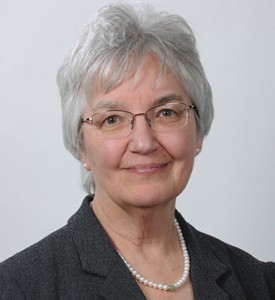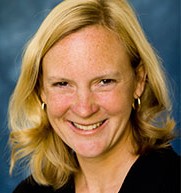 Stanley Tweyman is University Professor of Humanities and Philosophy at York University, Canada. We invited him to answer the question “What does philosophy of religion offer to the modern university?” as part of our “Philosophers of Religion on Philosophy of Religion” series.
Stanley Tweyman is University Professor of Humanities and Philosophy at York University, Canada. We invited him to answer the question “What does philosophy of religion offer to the modern university?” as part of our “Philosophers of Religion on Philosophy of Religion” series.
There is a sense in which the Philosophy of Religion is aligned with other areas of philosophy, in that they all try to provide answers to questions about the subject matter of that area of inquiry. So, for example, G.E. Moore’s Principia Ethica raises the question, “What is good?”, and Moore seeks to provide an answer to this (and other) questions. Now, generally speaking, the Philosophy of Religion proceeds in a similar manner: whether we are interested in proofs for the existence of God; criticisms of proofs for the existence of God; the way in which the topic of God contributes—or does not contribute—to certain philosophies; the epistemic significance of claims of revelation and the miraculous; all of these topics, and many more, are treated within the realm of the philosophy of religion, and are the focus of courses and research in the modern university. In one sense, then, an answer to the question ‘What does philosophy of religion offer to the modern university’ can be put in this (unexciting) way: The philosophy of religion offers the modern university whatever is done in the philosophy of religion.
We can go further (again, in an unexciting way) to compare the philosophy of religion to other areas of inquiry outside philosophy. In an obvious sense, Philosophy of Religion deals with its subject matter, namely God, in a manner which is similar to the manner in which other areas of learning proceed with their respective subject matter. Where they differ is in the subject matter connected to each field or discipline: astronomy studies celestial bodies, medicine studies the human body, while religion studies what can be known about God.
But this is hardly an adequate answer to our question. I regard the question of this blog to be a meta-question in the area of the philosophy of religion: here I am not doing the philosophy of religion; rather, I am trying to understand what contribution the philosophy of religion makes, or better, can make, to the modern university. Now, in fact, I want to narrow this inquiry even further than indicated above, by asking, what is it that only the philosophy of religion can offer to the modern university? I want to know what is unique in the philosophy of religion- what the philosophy of religion does not share with any other area of inquiry. I believe that we can provide an answer to this question.
It seems to me that to answer this question we need to grasp the point at which the philosophy of religion parts company with all other areas of inquiry. And that point is reached when we attempt to understand God, not through argument, but through contemplation and meditation. The philosopher who I believe articulates this point best is Rene Descartes, who in the last paragraph of the third meditation (after he has established that God exists as Descartes’ creator and that God is not a deceiver) writes: “…[I]t seems to me right to pause for a while in order to contemplate God Himself, to ponder at leisure His marvellous attributes, to consider, and admire, and adore, the beauty of this light so resplendent, at least as far as the strength of my mind, which is in some measure dazzled by the sight, will allow me to do so. For just as faith teaches us that the supreme felicity of the other life consists only in this contemplation of Divine Majesty, so we continue to learn by experience that a similar meditation…causes us to enjoy the greatest satisfaction of which we are capable in this life.” [i]
First, not everyone agrees that God exists, and even among those who do hold a belief in God’s existence, not all would agree that we are in possession of an idea of God (innate or otherwise) upon which we can reflect or meditate. Now, those who do not believe that God exists are outside the scope of this blog (except in the sense I discuss toward the end of this paragraph), although they can continue to study proofs of God’s existence and nature, and continue to formulate criticisms to support their position. Those who believe that God exists but deny that they possess a Cartesian or other-type idea of God upon which to meditate have three options: (1) either try to understand God through arguments, or (2) through alleged religious experiences (their own, or those of others), or (3) through the study of nature. On this third way, the most articulate statement I have found is one put forth by Albert Einstein in 1930 at the end of his work, “What I Believe”: “The most beautiful emotion we can experience is the mysterious. It is the fundamental emotion that stands at the cradle of all true art and science. He to whom this emotion is a stranger, who can no longer wonder and stand rapt in awe, is as good as dead, a snuffed-out candle. To sense that behind anything that can be experienced there is something that our minds cannot grasp, whose beauty and sublimity reaches us only indirectly: this is religiousness. In this sense, and in this sense only, I am a devoutly religious man.” I said at the beginning of this paragraph that non-believers are outside the scope of this blog, but, in fact, this may not be so. For, following the point made by Einstein, all those interested in art and science may be able to achieve the sense of religiousness of which Einstein speaks.
In this blog, I have tried to show that the philosophy of religion has an important contribution to make to the modern university in pointing us to ways to comprehend, however imperfectly, an appreciation of the divine.
[i] Rene Descartes, Meditations on First Philosophy, edited and with an Introduction by Stanley Tweyman, first published in 1993 by Routledge, London and New York, and in 2002 by Caravan Books, Ann Arbor, Michigan, by arrangement with Routledge.



